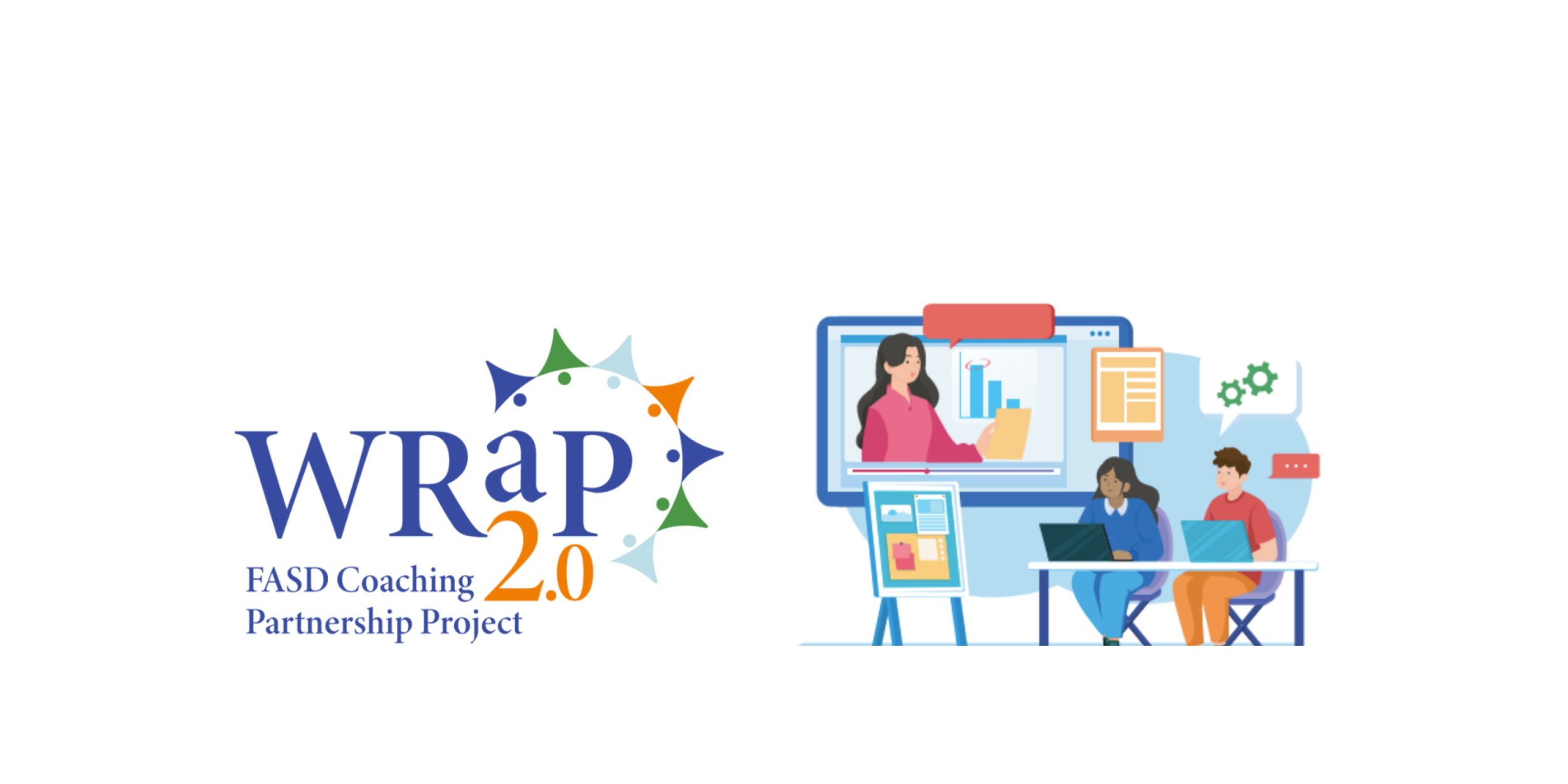
Background
The Wellness Resiliency and Partnership (WRaP) project provided school-based individualized mentorship and coaching supports for children and youth with Fetal Alcohol Spectrum Disorder (FASD) in schools from 2009 – 2017. The goal of the project was to maximize school engagement, increase academic success and enhance students’ social, emotional, and physical well-being.
The WRaP 2.0: FASD Coaching Partnership Project is a five-year collaboration (February 2021 to January 2026) between the Ministry of Education, Ministry of Community and Social Services and Alberta’s 12 FASD Service Networks that seeks to maintain the same goals as the WRaP Project while extending supports province wide.
Through the services of FASD Instructional Coaches, including at-the-elbow assistance and professional development, school authority staff will be supported to enhance their capacity to meet the education needs of students with FASD (Early Childhood Services – Grade 12).
What is a FASD instructional coach?
A FASD Instructional Coach is a frontline community worker who is knowledgeable about FASD, inclusive education and is skilled at facilitating teacher collaboration and sharing FASD-informed practices. The FASD Instructional Coach facilitates ongoing professional development for teachers and education staff and models and supports the use of FASD-informed instructional practices with educators, contributing to the school authority and provincial goals for student success and meeting the diverse learning needs of students with FASD.
The FASD Instructional Coach helps to facilitate change and is a driver of capacity enhancement and teamwork. Their goal is to facilitate professional learning in the field of FASD, including FASD-informed instructional and classroom strategies, and to improve school staff knowledge and student engagement. Their work helps to promote the creation of positive and supportive learning environments. As learning leaders, FASD Instructional Coaches continue to gain knowledge about emerging trends and research-based FASD instructional practices.
FASD instructional coaching is evidence-based, developmental, and established on individual/school/district goals and growth, voluntary, cooperative, and supportive. FASD instructional coaching is not a one-off, evaluative, forced, nor based on judgments or opinion.
As an FASD Instructional Coach, it is Danna’s greatest reward in building capacity with school teams and administrators to be creative responders to students with FASD. From case consultations to small group facilitation and including larger presentations, Danna’s style of working with education personnel is to bring new ideas through some of the evidence based practices we know to be effective in schools while promoting the validation of those excellent strategies that are already happening in school environments.
WRaP 2.0 Presentation:
Participants will get a little glimpse of some of the foundations of FASD, a quick look at some tried and true strategies for teachers in classrooms and how to inspire creative responses when looking at some of the more complex learners in our schools.
While brief, the presentation will encourage questions and discussion as well as providing information about how to involve instructional coaching in schools. Come and be inspired!
To learn more about WRaP 2.0 call our office at 403-652-4776 or visit the WRaP 2.0 website.

FFAS would like to acknowledge the traditional territories of the Indigenous peoples of the Treaty 7 region and Métis Nation of Alberta, Region 3. We respect the histories, languages, and cultures of First Nations, Metis, Inuit, and all First Peoples of Canada, whose presence continues to enrich our community.

